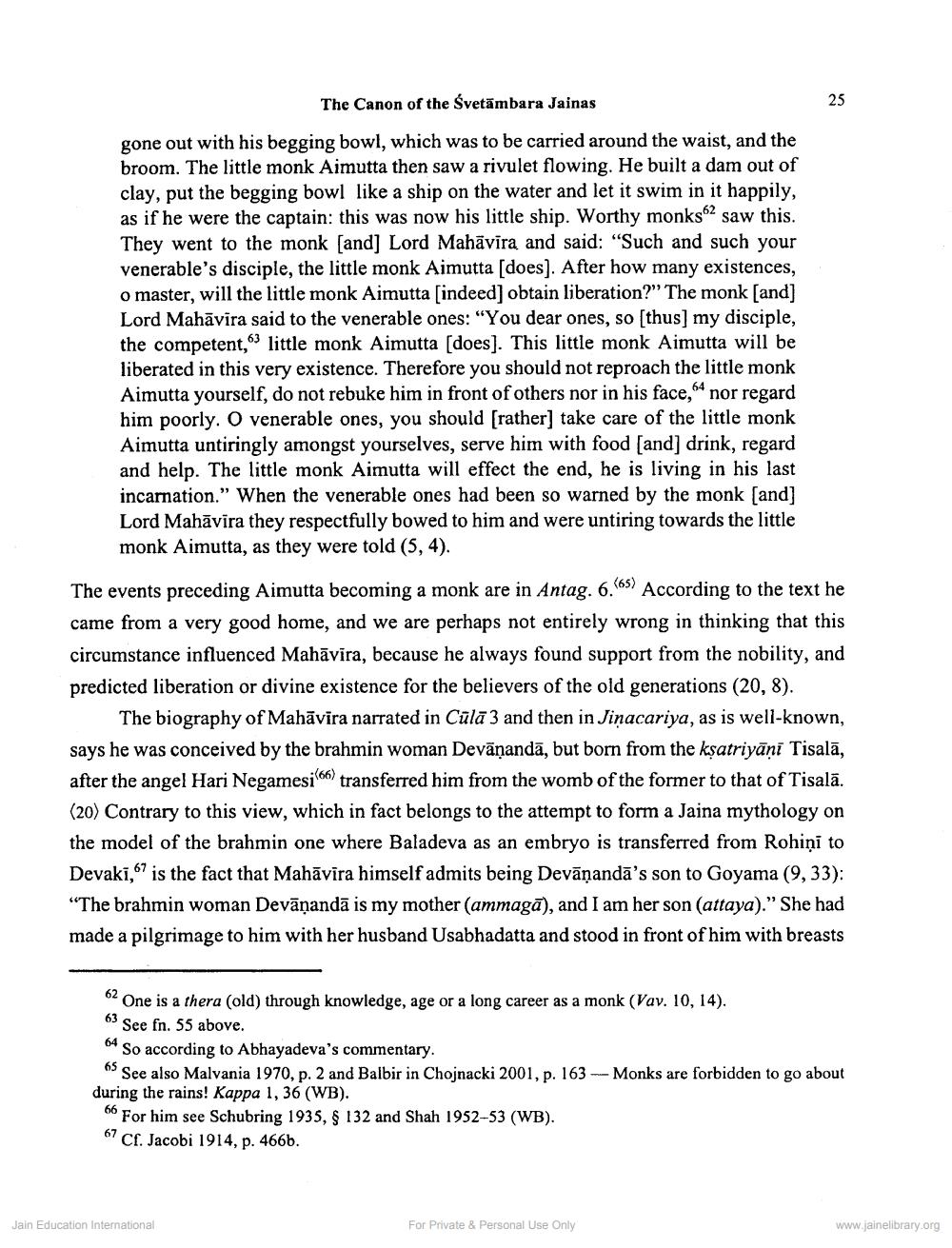________________
The Canon of the Svetāmbara Jainas
25
gone out with his begging bowl, which was to be carried around the waist, and the broom. The little monk Aimutta then saw a rivulet flowing. He built a dam out of clay, put the begging bowl like a ship on the water and let it swim in it happily, as if he were the captain: this was now his little ship. Worthy monks62 saw this. They went to the monk [and] Lord Mahāvīra and said: "Such and such your venerable's disciple, the little monk Aimutta [does). After how many existences, o master, will the little monk Aimutta [indeed] obtain liberation?" The monk [and] Lord Mahāvira said to the venerable ones: "You dear ones, so [thus) my disciple, the competent,63 little monk Aimutta (does]. This little monk Aimutta will be liberated in this very existence. Therefore you should not reproach the little monk Aimutta yourself, do not rebuke him in front of others nor in his face, 64 nor regard him poorly. O venerable ones, you should rather) take care of the little monk Aimutta untiringly amongst yourselves, serve him with food [and] drink, regard and help. The little monk Aimutta will effect the end, he is living in his last incarnation.” When the venerable ones had been so warned by the monk [and] Lord Mahāvīra they respectfully bowed to him and were untiring towards the little monk Aimutta, as they were told (5, 4).
The events preceding Aimutta becoming a monk are in Antag. 6. (65) According to the text he came from a very good home, and we are perhaps not entirely wrong in thinking that this circumstance influenced Mahāvira, because he always found support from the nobility, and predicted liberation or divine existence for the believers of the old generations (20,8).
The biography of Mahāvīra narrated in Cūlā 3 and then in Jinacariya, as is well-known, says he was conceived by the brahmin woman Devāṇandā, but born from the ksatriyāni Tisalā, after the angel Hari Negamesi (66) transferred him from the womb of the former to that of Tisalā. (20) Contrary to this view, which in fact belongs to the attempt to form a Jaina mythology on the model of the brahmin one where Baladeva as an embryo is transferred from Rohiņi to Devakī,67 is the fact that Mahāvīra himself admits being Devāņandā's son to Goyama (9,33): “The brahmin woman Devāṇandā is my mother (ammagā), and I am her son (attaya).” She had made a pilgrimage to him with her husband Usabhadatta and stood in front of him with breasts
62 One is a thera (old) through knowledge, age or a long career as a monk (Vav. 10, 14). 63 See fn. 55 above. ** So according to Abhayadeva's commentary. ** See also Malvania 1970, p. 2 and Balbir in Chojnacki 2001, p. 163 ---Monks are forbidden to go about during the rains! Kappa 1,36 (WB). 06 For him see Schubring 1935, $ 132 and Shah 1952-53 (WB). 67 Cf. Jacobi 1914, p. 466b.
Jain Education International
For Private & Personal Use Only
www.jainelibrary.org




